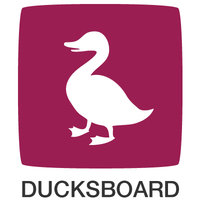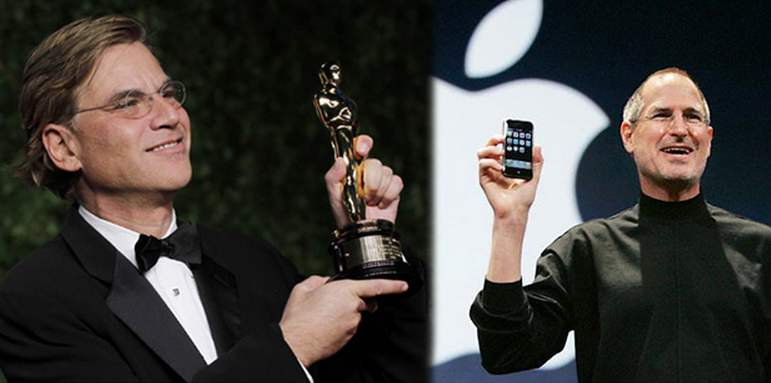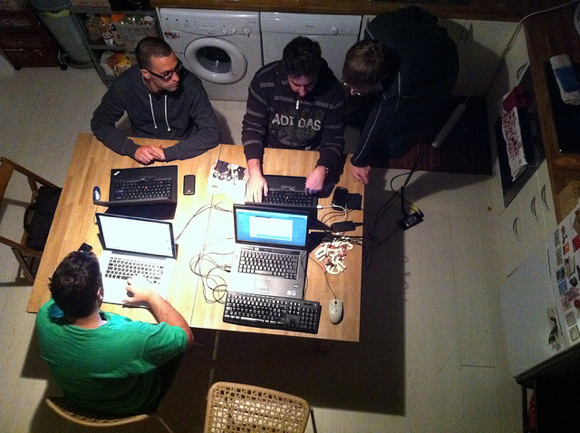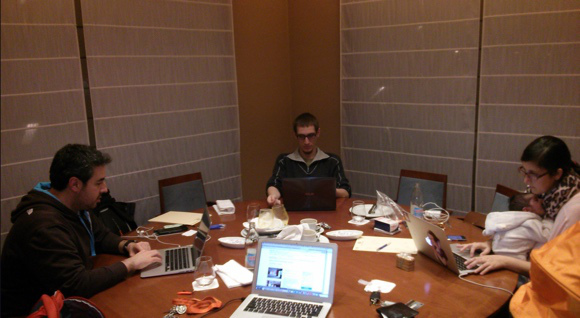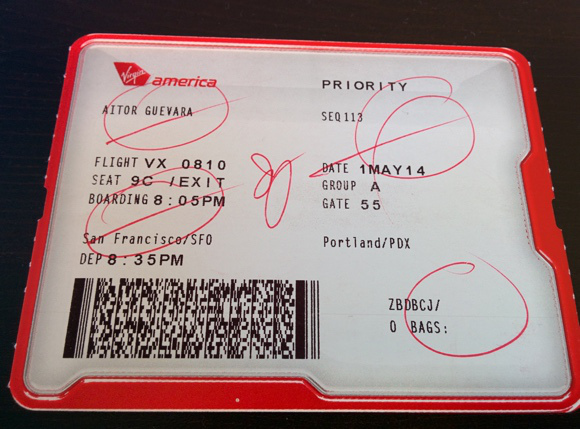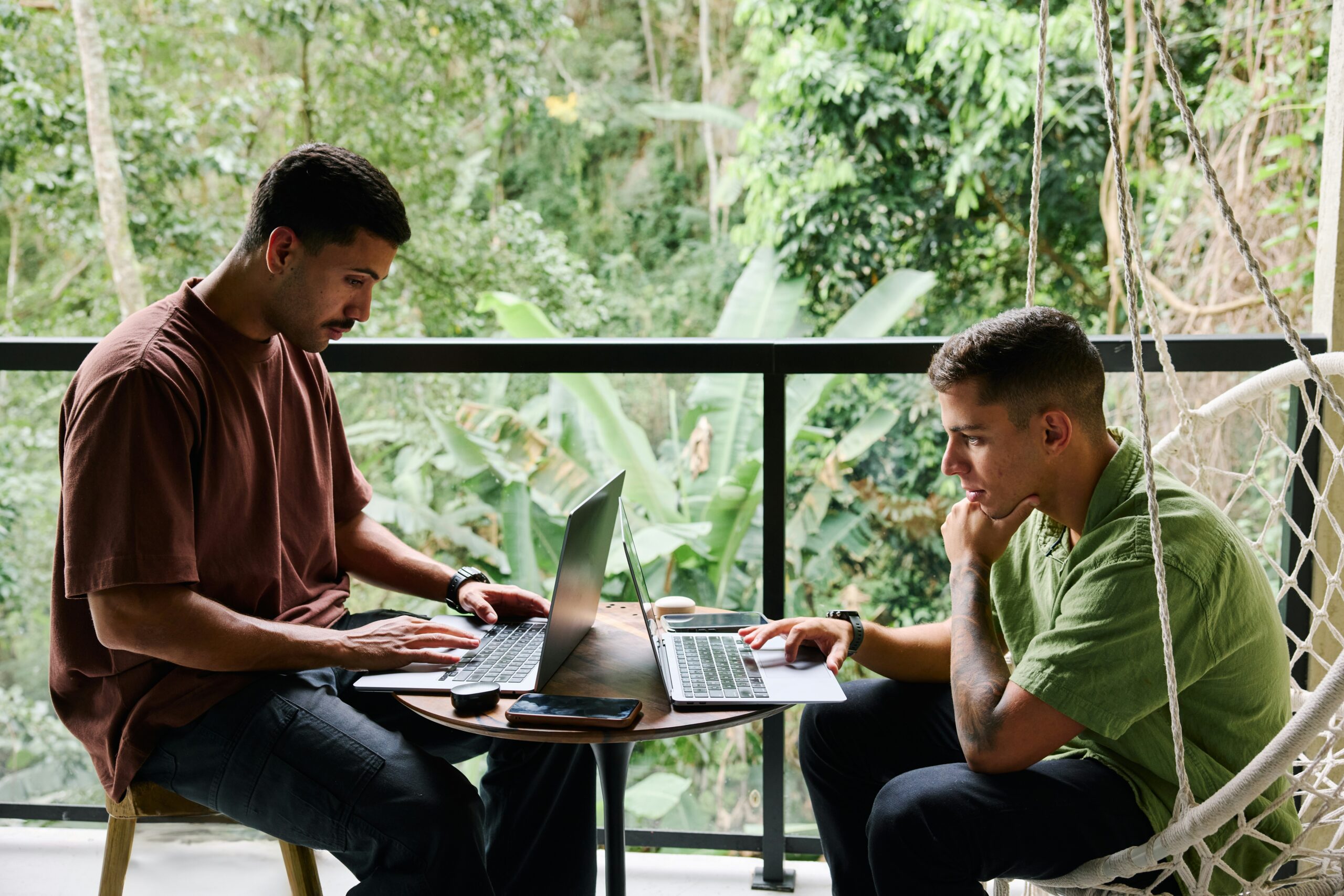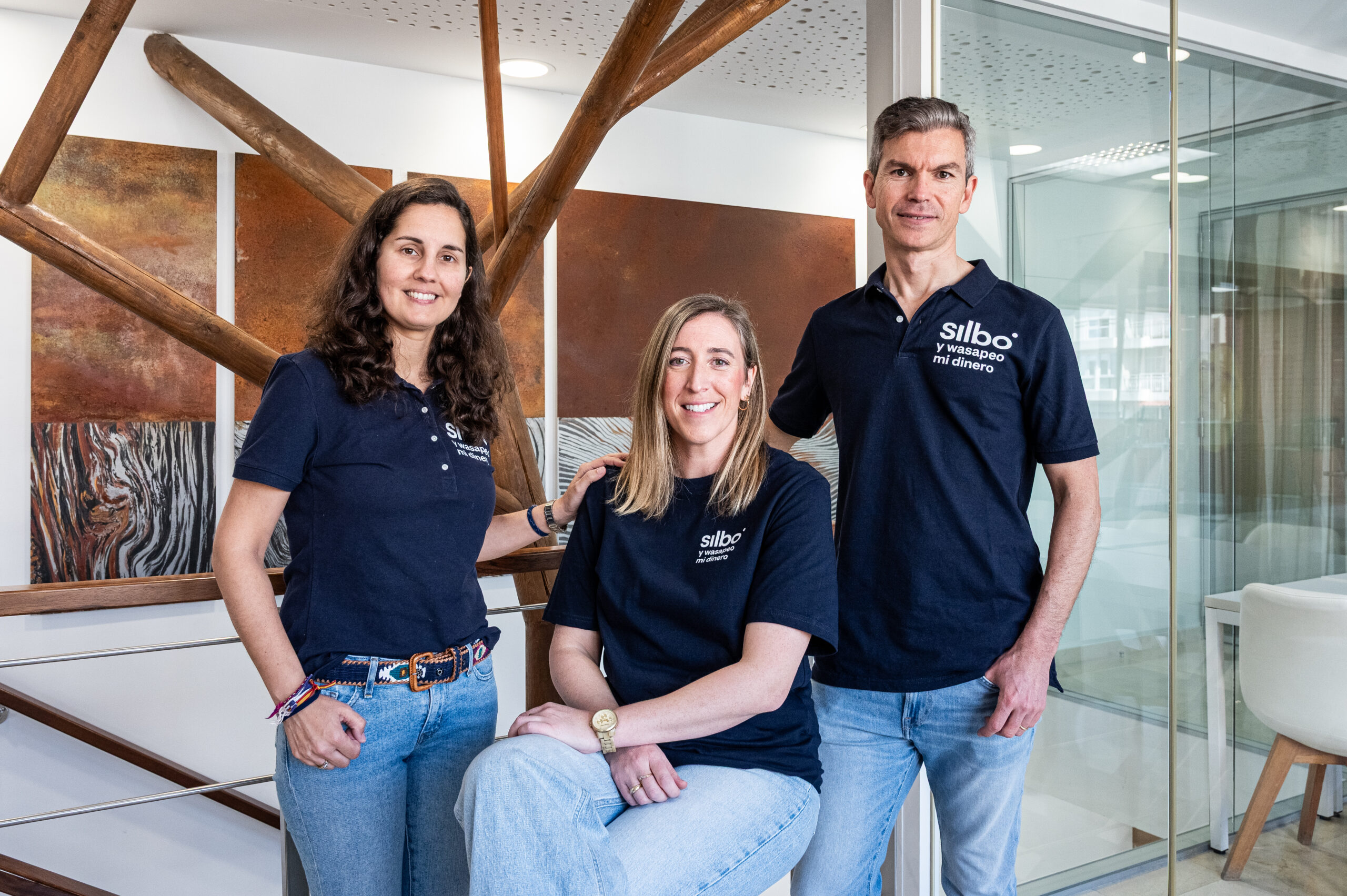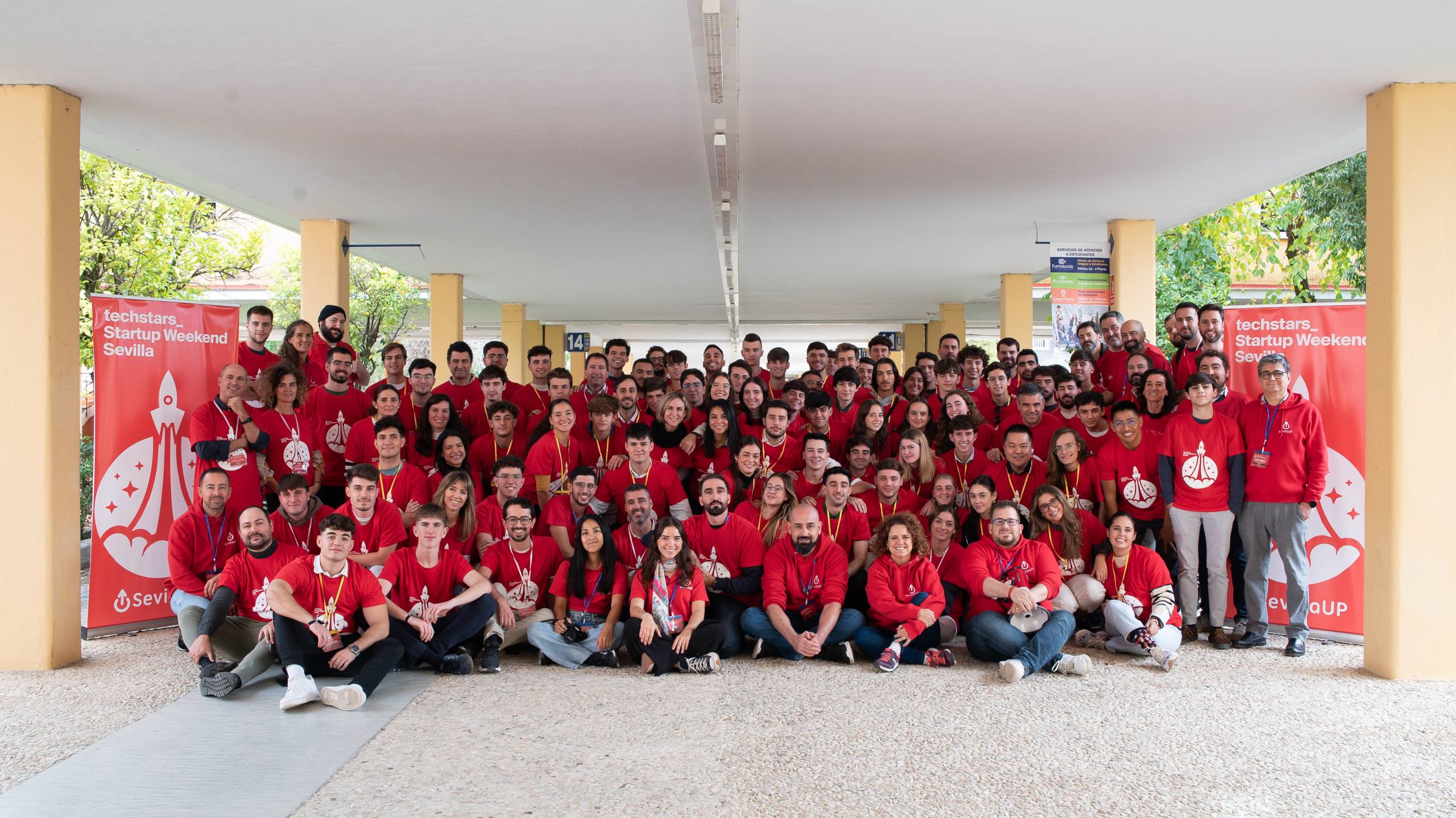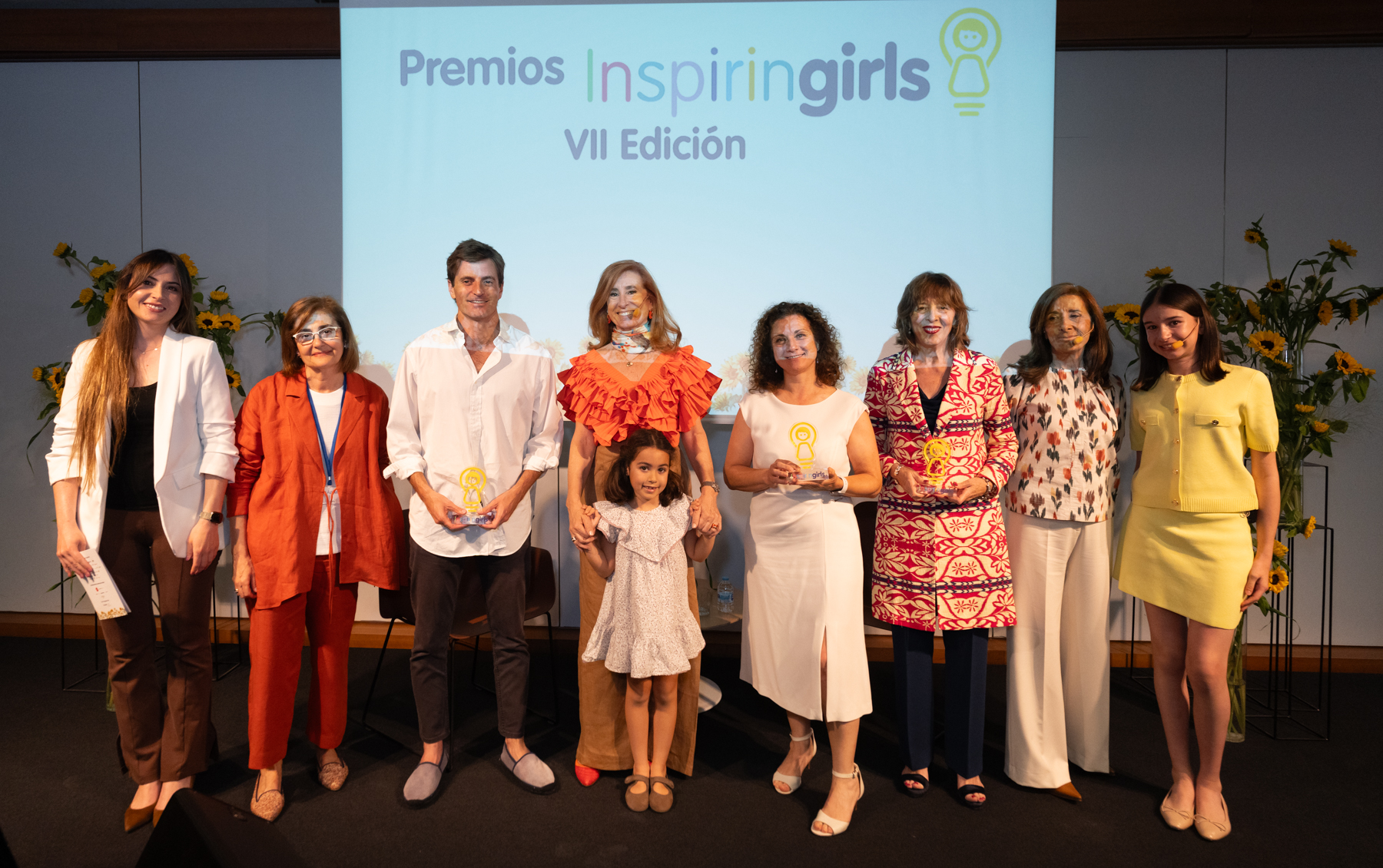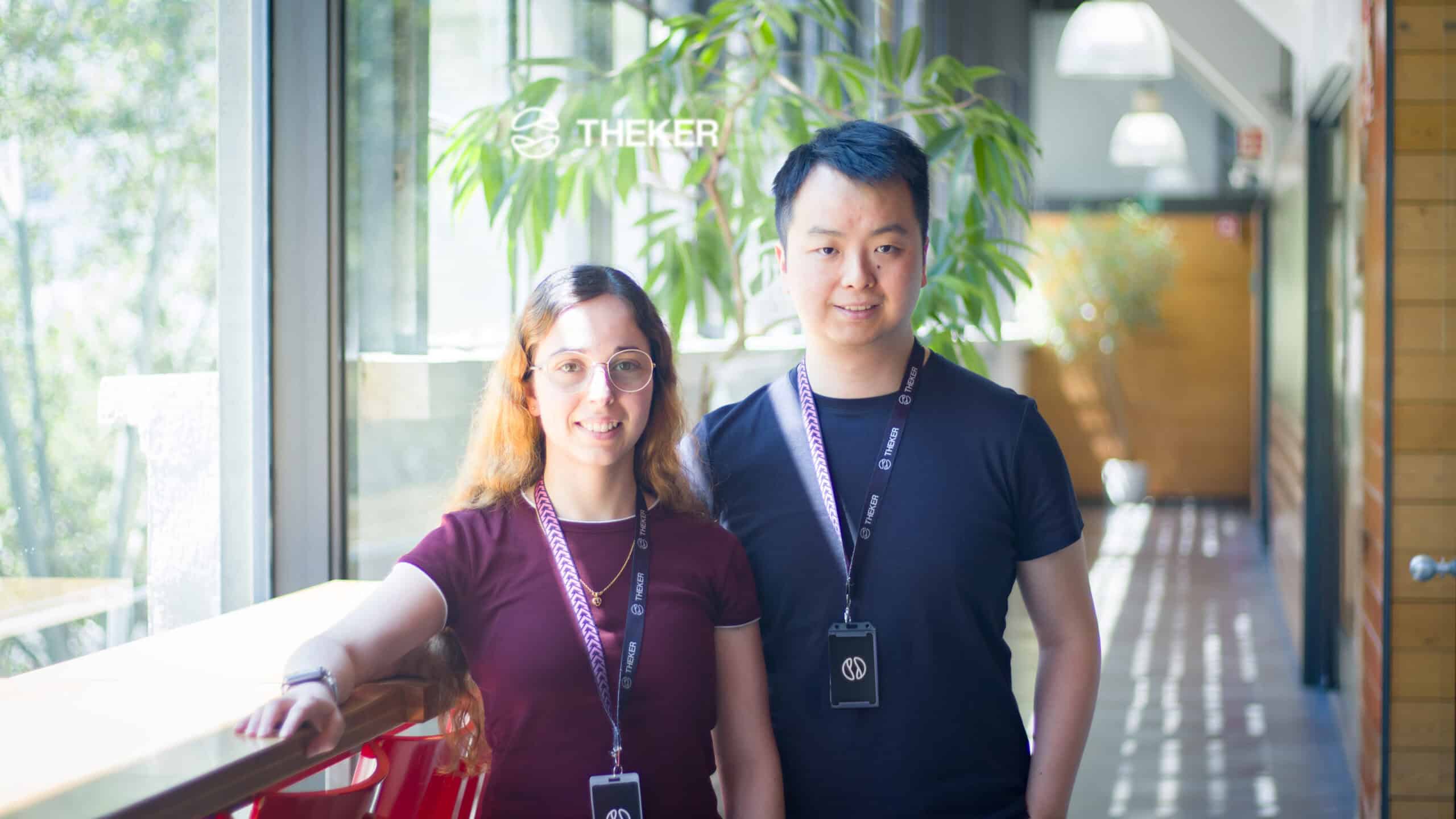This article was originally written by Aitor Guevara, co-founder of Ducksboard, and published on Aitor’s personal blog. I’ve translated it because I think it’s a story worth sharing with the startup community outside of Spain, given Ducksboard’s recent acquisition by New Relic.
There’s been a lot of talk about a new biopic about Steve Jobs. Not the absurdity created by Kutcher, but something much more substantial, in theory. And I say in theory because knowing who is behind the script I can only be optimistic. You might not know Aaron Sorkin, but if I tell you that he was the man behind the scripts of Few Good Men, The West Wing or The Social Network, you will realize he’s not an amateur.
We don’t know many details about the film yet, but what’s really intriguing is how Sorkin will approach the figure of Steve Jobs. Far from the classic formula of going over as many situations of Jobs’ life as possible, Sorkin wants to focus on three unique moments. Three specific events that he thinks will illustrate the depth and complexity of the subject in an honest way: the moments prior to three keynotes that heavily influenced Jobs and Apple’s career. The famous keynotes that elevated him to the altars of technology. By simply following Steve during those three episodes, Sorkin thinks that he can capture and share his essence. And I think that is awesome.
With the recent acquisition of Ducksboard by New Relic I’ve thought about paying tribute to Sorkin using his formula. At Ducksboard we’ve gone through all kinds of situations, good and bad, but I will try to summarize this journey in only three episodes. Three moments that represent what the ‘Duck’ means for me. I hope you enjoy it, because it’s a significant part of my life.
Madrid, March 2011
Wednesday 16th, to be exact. It’s still cold in Madrid. For two months we’ve been locked at Diego’s attic, the original Patoplex, working on the first prototype of Ducksboard. Diego, Jan and I come from Barcelona but we have started the project here.
We’ve all ended up in Madrid for different reasons. Diego has just left Abiquo and has joined Marta in Madrid -she’s going to be leading SeedRocket’s branch in the Spanish capital- and he’s working at a startup. I’m at an impasse, tired after working for many years at Flumotion, and also a bit tired of Barcelona, where my life has become too monotonous. Diego has offered me to join him at the company he’s started to help out. Jan has also left Flumotion to go to Madrid because his wife, Olga, is going to study there. He’s looking for work and it’s easy to convince him to join us. But the startup doesn’t take off, we’re not aligned with the people in charge and we leave after only two months. The three of us are unemployed and we soon realize it’s the right moment to create the company we always wanted to work at™.
The premise: the product does not matter, this is about doing what we want to do, with the people we want to have as colleagues.
It’s no exaggeration to say that the early days at Ducksboard are the best in my professional career. We walk in slippers around the house, working without hierarchies that slow down everything. We work day and night because we are passionate about it. We eat a lot of candy, play Fifa and we celebrate every small step as if it was a great achievement. We are fast. I have never worked so fast, so hard. I love the experience. I love working on something that belongs to me, to us. Our only limitation is our own excitement.
On March 16th we announced to the world that we are working on something. A simple teaser site, using a rudimentary version of our technology, shows a Twitter timeline updating in real time. The mockups from Vostok (many thanks to Javier and Ricardo for joining us from the beginning!) and a form to capture email addresses complete the picture. Hacker News does the rest.
We did not expect to be on the front page of Hacker News, and climbing to the top of the site was more of a dream than a thought. We did not expect thousands of email addresses from people interested in the product, nor having to expand the service plan that managed the emails at least three times in less than an hour. We did not expect such a great response. Diego can barely speak.
People want what we are building and they want it now. We have found the product, we have found an audience and the stars are aligned. Such support reinforces and motivates us to work even harder.
We’re going to achieve what we want. We will assemble a first-class technology startup in Spain. This is what success might smell like.
Logroño, February 2013
Two years have gone by since our successful teaser. Much has changed since then.
We have expanded the team from the three initial co-founders to a total of eight employees. We’ve raised a seed round (€560,000). The service has been live for a year. We are not some guys working out of illusion from an attic anymore. We have funding, equipment, an office, customers … and responsibilities, expectations, payrolls and bills to pay … We have to create a business out of our product to justify all of this.
And we are not succeeding.
The market uptake is not what we had anticipated. It’s not even close. Many people come to try Ducksboard, but few decide to pay for it. The reasons? Many, but the usual. The product itself: perhaps too generic, unfocused, too limited in its functions. Its marketing: we want to compete with our closest rivals in the same terms as them, which pushes us to lower prices, where users want to pay even less, forcing us to have a huge client base to be profitable. Our limited ability to promote ourselves: with little money and fewer hands.
Anyway, things are not going well. The wild motivation from the early days has vanished and our incredible iteration speeds too. Maintaining existing software is much more expensive than developing from scratch. And less fun. We’ve tried various strategies to improve our sales, but none seem to work.
We are tired, we feel defeated. We wanted to prove ourselves to ourselves and to the world. And right now we feel like we have let down many people in the process. Investors, our colleagues, ourselves.
The reality of a business is simple, blunt: if there is no income, there is no business. If money does not come in, your business withers like a flower without water, until it dies. But at least you can choose how to die, or when.
Marta and Diego have just had their first child, Pablo. They are spending the first few months with Marta’s family in Logroño to have some support. Jan and I have come to town to meet him and we’re going to stay here for a week to work on the project. There are many issues on the table, but the real elephant in the room has not made an appearance yet. We’re missing courage.
It is never easy to think about closing your own startup. It’s hard to get rid of two years of effort. But we don’t want to be one of those zombies that doesn’t realize he’s already dead, when almost everybody sees that. It’s better to die with some dignity. Better to leave it when you still have some control. Marta disagrees, she thinks it’s too soon to give up. But Diego, Jan and I are very tired, very disappointed. Nothing hurts more than not getting good results despite hitting your head on the wall numerous times.
I’m afraid of what comes next. I do not know how I will adapt to working for a company once again. How am I going to tell my friends and colleagues that this is not working and that the fire is not burning anymore.
I don’t know how someone wakes up from a two year old dream and goes back to his previous life.
Portland, May 2014
Just over a year ago we were sunk in despair convinced of closing the company, and today, May 2nd, we feel better than ever and nervous at the same time.
Life takes many turns.
Two key factors in the recovery of our confidence. The support of some of our investors helped us tremendously. We owe a lot to Rubén, Juan Luis and, especially, Walter. Without the rescue operation orchestrated by Walter we would have not come out of the mud. They helped us see that our numbers were not as bas as we thought they were and we saw the light at the end of the tunnel. We’ll always be thankful, Walter. The ‘Kibos’, Javier and Aquilino, showed how much they trusted us by leading a new round in Ducksboard when things didn’t look very well.
The second component in our recovery is the new version of the product that we have been focusing on since late 2013. I’ve been working on a prototype that tries to address many of the design limitations of the original software, adding new and powerful features. We are happy with what we have designed and we ask the entire team to work on the rewrite. As I’ve said, working on new software is much more motivating than maintaining something old. The team is back at it again, we’re gaining speed and the atmosphere in the office changes dramatically. The era of v2 has begun. We’re focused. Again, finally.
And just as bad news never come alone, it seems that good ones also like to come in bunches.
As New Relic partners (we are integrating their API and many others), we found out that they were about to launch a beta of their new service, Insights, and they encourage us to integrate Ducksboard with it. They give us access to a private beta that very few people have seen. The idea is promising: storing trillions of data, offering the ability to consult them in a flexible way (with a variant of SQL) and being able to visualize them by creating graphs organized in widgets and dashboards. There’s a lot in common with what we are trying to achieve with Ducksboard, so we’re curious about it.
As I look at the beta I have a crazy idea that I share with the rest of the office. Insights has a very powerful backend, but the frontend part is still very raw. Our v2 could be the perfect frontend for the product. I tell the rest of the team as a joke: we should send an email to New Relic’s CEO to offer our services. Thankfully, Diego and Pierre are more agile than I am and they soon realize that, far from a joke, my idea makes sense. Said and one, we need to take risks and we send that email. From CEO to CEO, “we think we can help”. It’s ok to give it a try and, if they are interested in it, they are a company we’d love to work with.
What follows are a bunch of conversations that we thought would not happen. The CEO replies telling us that we should work with their VP of Product. After talking to Diego, it’s clear that our visions are very similar. They put is in touch with Corp Dev. and they organize various meetings with other New Relic executives. We talk a lot about what we are building and what we want to build in the near future. Everything seems to fit in well with their vision, too well to be honest. There is only one way to know the limit: visit New Relic’s offices in Portland, present ourselves as a team and show them our new product. And there we go.
As co-founders we know what’s at stake at this meeting (the rest of the team, except Pierre, doesn’t know what’s going on). We haven’t created a big business, but we think we do have a product with a great potential and it can grow faster and stronger within an organization like New Relic. If we are able to convince them and they decide to acquire us, Ducksboard might have a great future. This could be our last opportunity. Our partners and investors were able to help us once, but we can’t count on that happening again. This is the most important in our lives.
At their offices we sat down with people at the highest level in the organization. Senior VPs, VPs, Leads, etc. We break the ice by talking about football. The meeting lasts several hours. Who we are, what are we doing, how… We demo our v2 in its current state. Questions, lots of questions. We have answers for everything, we’ve prepared this well. The demo is perfect and they seem pleasantly surprised, our interactions with them couldn’t seem better.
They take us out for lunch and we keep talking. It is increasingly clear that they are interested in us, they see we match with them. There are doubts about our location (Barcelona) but our interests are aligned. We will find a solution, we’re flexible, we’ll make it work. They are looking for people that are able to create products in the data analysis market. We are looking for someone that can sell our software. It all fits. In the end, it’s a great day. We left elated, convinced that we have been at our best, proud of our performance.
Many months need to go by, negotiations, tension and a ton of work. And even an agreement that could be its own blog post. But the reality is that on May 2nd 2014 in Portland, Ducksboard fell in love and someone else fell in love with Ducksboard. The ‘Duck’ finally started flying. And only time will tell how high.



